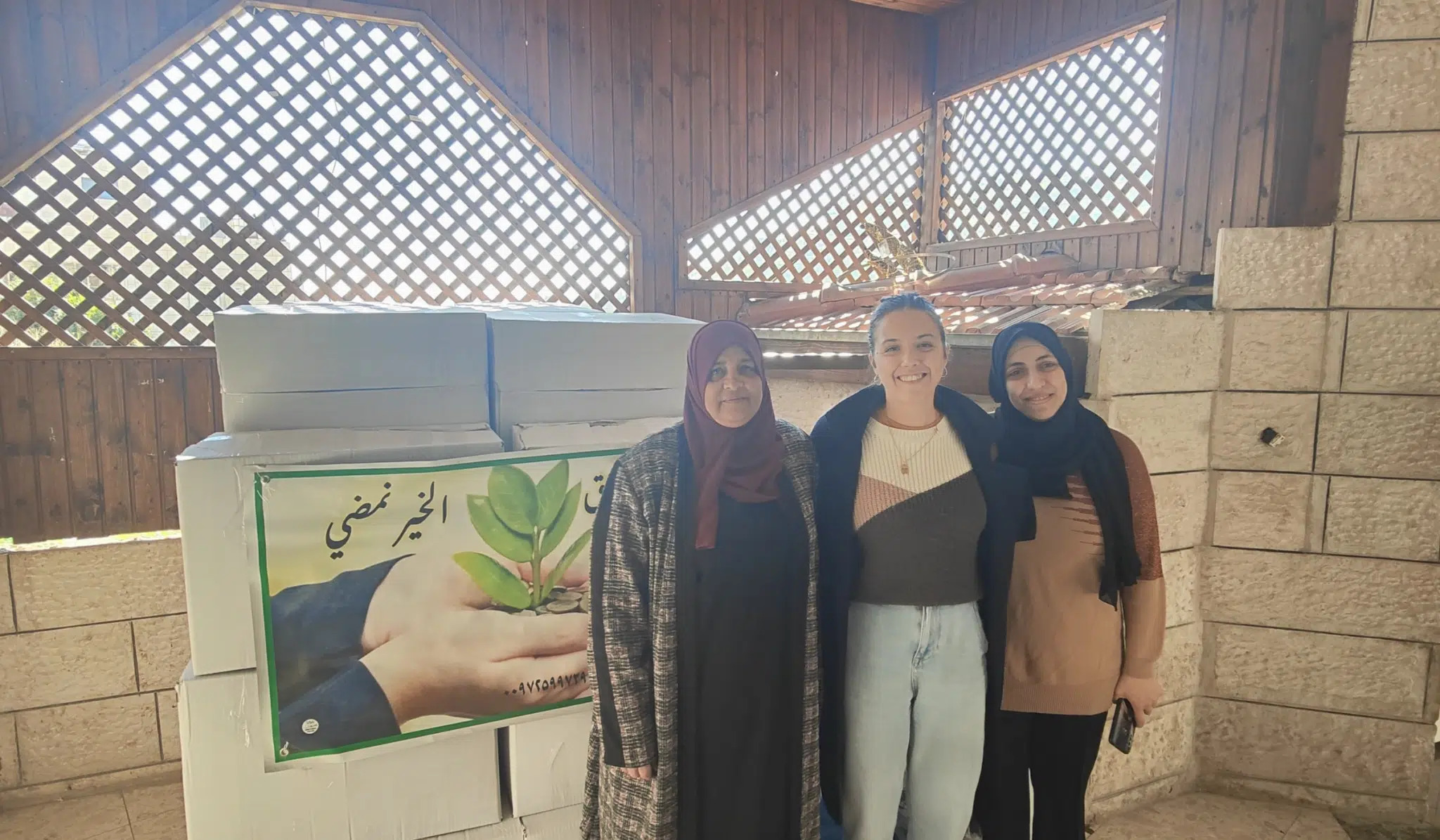“When you see a woman or a child suffering, you just want to do something for them. It’s always nice to see that many of the children I’ve helped have come back to thank me.”
Elham is a Muslim woman from Bethlehem who has always helped poor families and children in difficulty who do not have parents. Since October, Pro Terra Sancta has been working with its association to deliver basic necessities to the Strip for families in need. Worried about an increasingly serious humanitarian emergency, she recounts her commitment to helping the least in Gaza.
Elham, how do you find these families to help?
Before doing this work, I was already involved in the field of humanitarian assistance and I already knew what poor and struggling families were. I take names from these lists and then I know who to help.
Do you belong to any particular association?
Yes, I work for an association called “Tarikh al-Khayr”, which means “in the footsteps of good”.
What is your relationship with Pro Terra Sancta?
I met you a few years ago, because you helped us collect basic necessities for needy families. The relationship has intensified during this winter season, because we have collected and brought so much aid to Gaza.
How do parcels get to the Strip?
Not all food and parcels have been able to enter Gaza: the army is blocking them. What is allowed in is only a small amount which unfortunately is not enough. Other NGOs have managed to get parcels in (such as those from Qatar or Saudi Arabia), but not enough for the need that is there. Many parcels are still stuck at the border.
Of what you have prepared for Gaza, what has gone in and how?
I shipped about 700 dresses to Jordan and they managed to get into Gaza, but it was very difficult and it cost a lot more than it would have cost to ship them from here to Gaza directly. The head of the office (of the association) managed to get them from Jordan to Gaza, first passing through Egypt, by air or by truck, along with other aid sent from Qatar and Saudi Arabia. When the war started, we used to send money via mobile phone sim cards (to phone numbers in Gaza), then they could use it in supermarkets to buy food. There is still food there, but prices have tripled. 10 kilos of flour used to cost 60 shekels (about 15€) now it is 700 shekels (about 200€). People no longer have access to their money because their houses and all the other buildings have been demolished, and they don’t even know where their money is. Food boxes for 800 people cost 25,000 shekels (6,250 euros, about 7.5 euros for each lunch box).
What difficulties do you have in getting aid to Gaza?
It’s not a problem for me to ship the packages, but it all depends on the Israelis opening and closing the border. The idea was to take pictures of ID cards to figure out how many children a person has and figure out how many things to put in packages. On each package we put the name and phone number of the person who is to receive that package and inside we also put 500 shekels to buy milk for children and other baby products.
How many people work with you?
We are seven staff members and 30 volunteers. We are present in several cities in Palestine such as Tulkarem, Jenin and Nablus. Now we are waiting for permission to enter Gaza, which should come with the “ceasefire”. In case we will pass by Rafah. From Jordan by plane you arrive in Egypt, in Cairo, and from there you reach Rafah.
Can you be in touch with the people you help in Gaza?
It depends on the connection, sometimes they call me and then I call them back. They are located in different parts of the Strip and have been displaced at least four times. Now they are in Rafah, before they were refugees in schools but when the Israeli army started bombing the schools they took their children and fled to Rafah. They now live in tents, but they are in short supply, and many people have taken nylon tarpaulins and built tents. When it rains it is impossible to live, the field fills with mud. We also try to help them buy nylon sheets, and so far we have managed to help 100 families. Each roll of towel costs about 600 shekels (about 150€).
Many diseases are spreading in Gaza because they can’t eat clean food and everything is dirty. Children have lice and because of the dirt and many skin diseases are spreading. Women who are pregnant are forced to give birth in their homes, or wherever they can. By comparison, in 2002, when there was the siege of the Nativity in Bethlehem, there were people who took it upon themselves to house displaced people in their homes. They provided for everything, provided clothes, food, personal hygiene products. Try to imagine what the situation in Gaza means now under these conditions. Now they don’t even have the bare minimum to live.
By:proterrasancta






